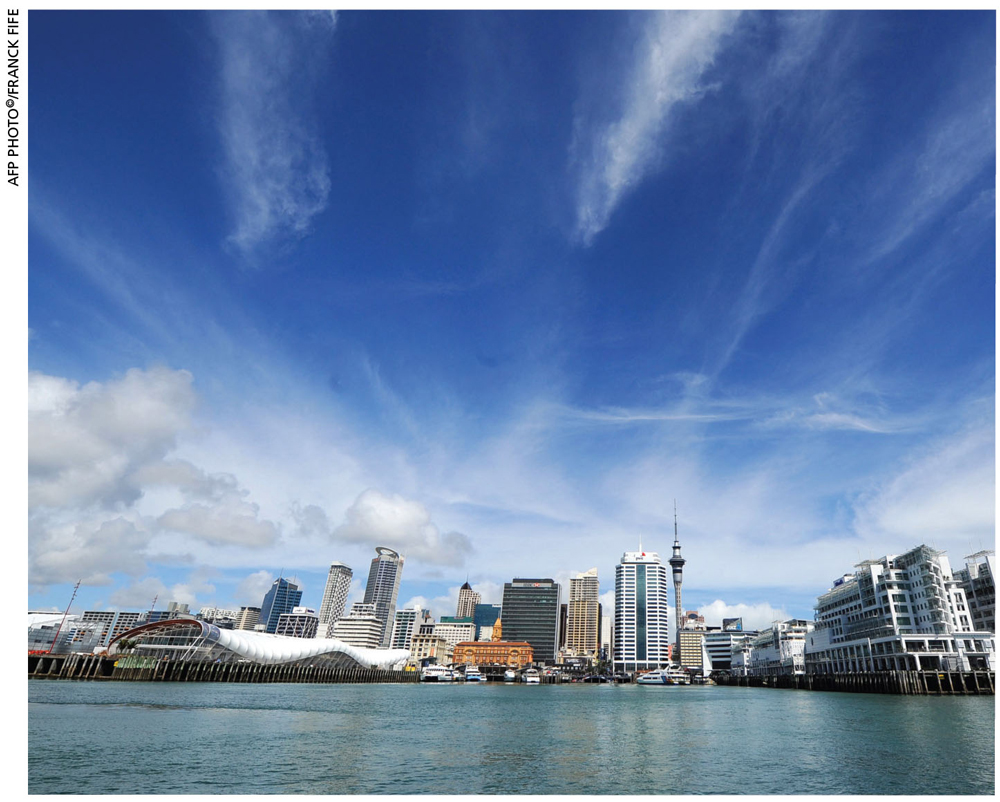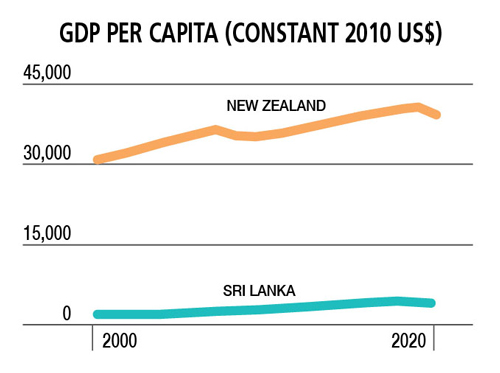
Sri Lanka is broke and hasn’t been able to afford medicines. Paddy in the erstwhile ‘Granary of the East’ is controlled by the rice mafia. And the president says we need to work extra hard on our empty stomachs to become a developed nation by 2048.
LUNAR MADNESS?
BY Priyan Rajapaksa
By 2048? I will be 95 and he 99. To celebrate the miracle, we will dance a very slow baila while seated in our wheelchairs. And to emphasise our participation, we’ll throw our walking sticks in the air!
The year 2048 sounds ominous. In the Chinese calendar, 2048 is the ‘Year of the Yellow Earth Dragon.’ Does it mean the current colonisation will be complete a century after the British left?
If 2048 is a pipe dream, then my suggestion is more realistic – an approximate 10 percent increase in GDP can be achieved by rearranging or synchronising our holidays and prayer days.
My example is New Zealand… where I live.
We work fairly hard on weekdays and our weekend begins on Friday with beers after work. Saturday and Sunday are devoted to rugby, racing and beer. And we aren’t doing too badly.
New Zealand has 13 public holidays compared to 26 in Sri Lanka. The chart on this page explains the difference in GDP between the two countries and its message is worth a thousand words.
Isn’t our calendar strange?
We name the days of the week after the Sun, Moon and Norse gods. Friday is named after Odin’s wife Frigg, Saturday honours Saturn and Sunday is obviously a tribute to the Sun.
But the old gods have fallen out of favour. And yet, we still pray to new gods and days named after retired deities. Do these names have any special or holy significance?
The realignment of holidays in Sri Lanka has been on my mind for a long time. Mine are often off-the-wall ideas but slightly more realistic than ‘Utopia 2048’ and the centenary birthday celebration of our great leader.
An article published in the Sunday Times of 6 November 2022 read: “Full moon poya day as a holiday has a history. Many Sri Lankans perhaps are not aware that immediately after coming to power in 1965, the Sri Lankan government led by Prime Minister Dudley Senanayake made an astonishing decision to make Saturdays and Sundays working days, and instead gave holidays on ‘pre-poya’ days and ‘poya’ days.”
It was a crazy calendar. Those who can remember will recall pre-poya and poya holidays. That was during the heyday of the Beatles. Senanayake was probably a Beatles fan and borrowed the concept from their song of that time. So we ended up having ‘eight days a week.’
The 1960s was a schoolboy’s dream come true. Many took Saturday and Sunday off as they were the traditional holidays, and pre-poya and poya days too as these were declared holidays. Work in the country came to a standstill and we did not know if we were Arthur or Martha!
It took a change of government to right the ship.
But to save face and keep the saffron garbed people happy, the new government retained poya day as a national holiday. Crazy times – and I think it contributed greatly to losses in productivity and a non-working culture.
For over 50 years, we have paid a high price for this folly. The only countries in the region with more holidays than we have are Nepal and Myanmar. And we don’t want to end up like them, do we?
The last major change in calendars was in 1582 when Pope Gregory XIII introduced the Gregorian calendar to replace the Julian equivalent. With a wave of his staff, he changed the days to construct a practical calendar.
There is nothing sacred about a calendar because it’s simply a schedule that humans make up for their convenience. Maybe we could go digital, and call the days in a week ‘day one’, ‘day two’ and so on ?
Gregory changed the holidays and the Senanayake-Bandaranaike duo came up with a bad compromise. So why can’t we change it again… for the better?
Let’s move the midweek poya holiday to the closest Friday... that will give two communities a full day off for religious observances. Does the whole country need to shut down for the religious holidays of different faiths?
Allow each faith two holidays of their choice for religious observances with the option of cashing in the unused holidays.
Follow the universal pattern – especially in New Zealand and Australia – and shut the country from 20 December until around 5 January. Only shops and restaurants will remain open to allow customers to shop till they drop and then go broke.
Recognising the deadly heat of April, harvesting periods and a shortage of water for power generation, it would be wise to close the country for two weeks in mid-April – for harvesting and traditional Avurudu festivities.
During the shutdowns, factories and machines can be reconditioned; people’s minds and bodies can be rejuvenated – with proper rest and downtime; and the tourism industry will be able to strategise better.
People will return to work fully rested – and then we may have a competitive and more productive country.
This content is available for subscribers only.






